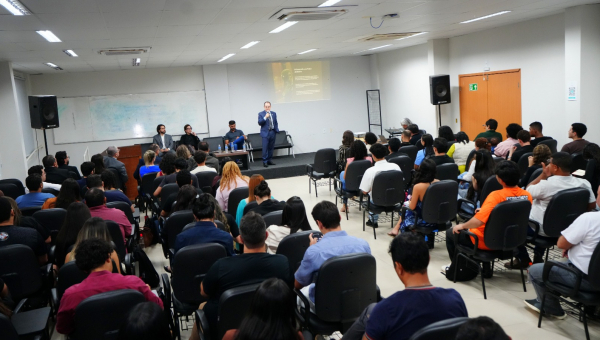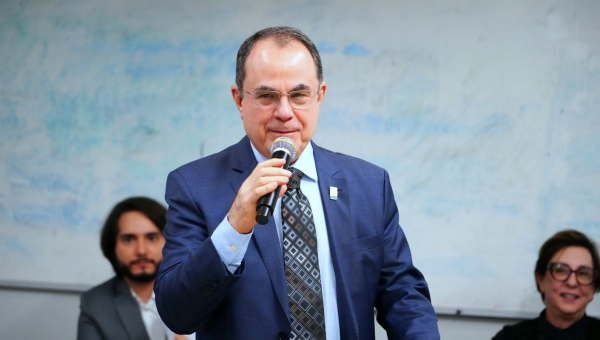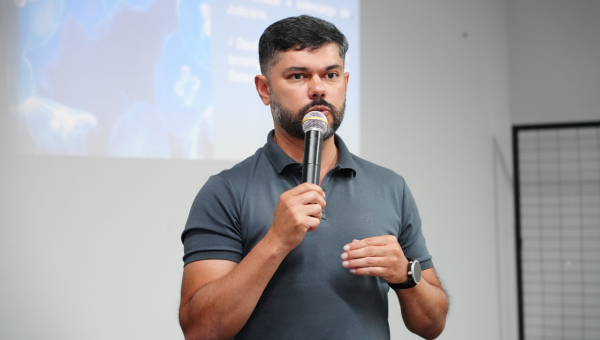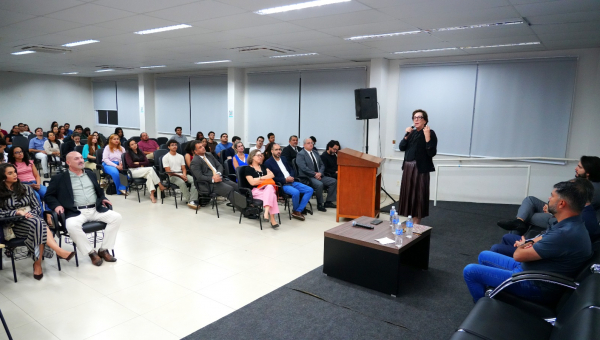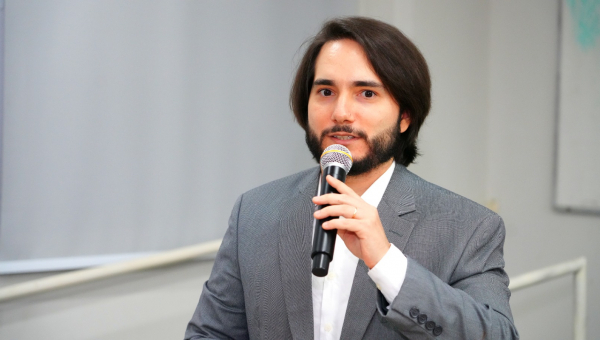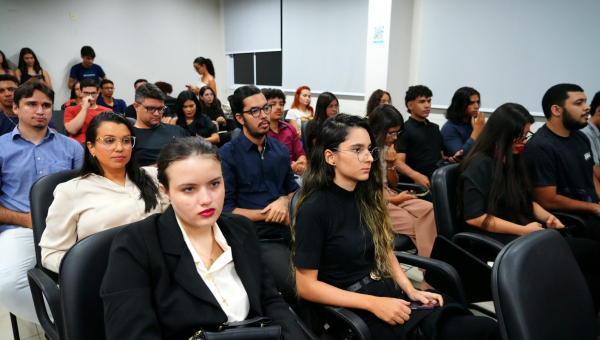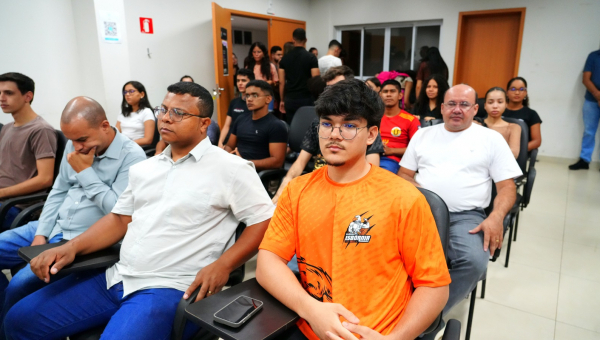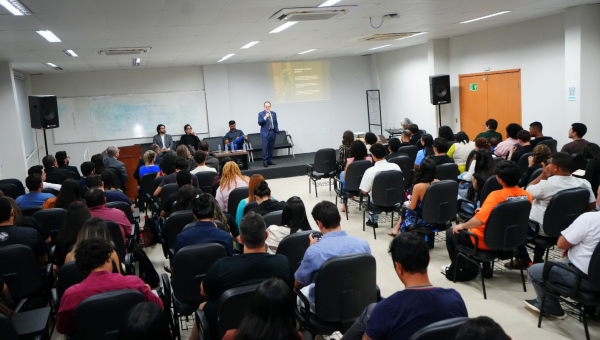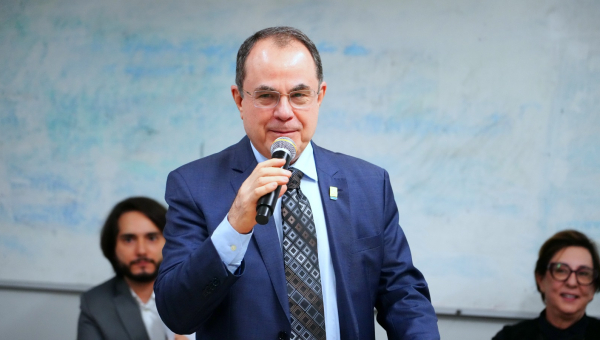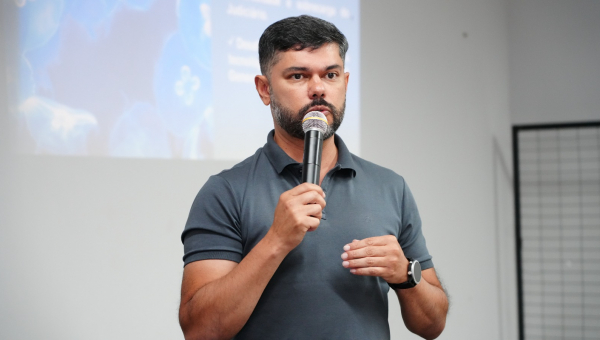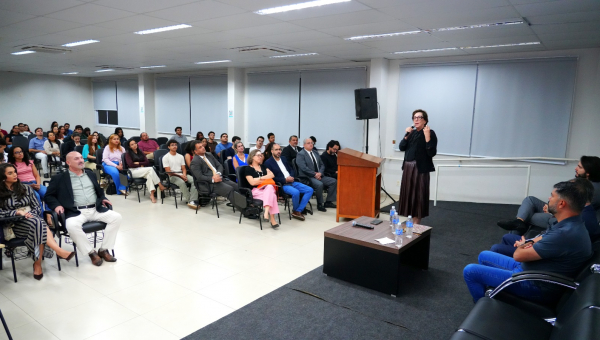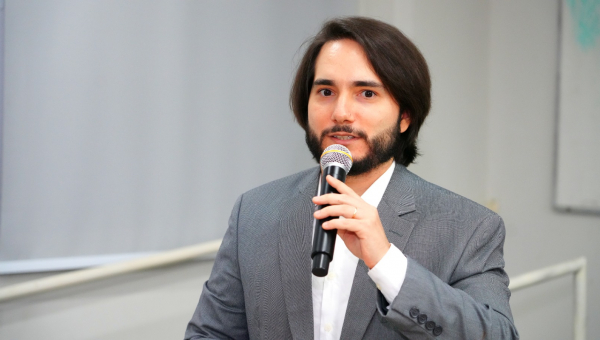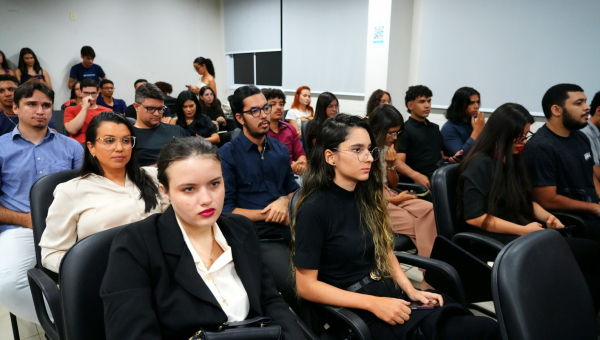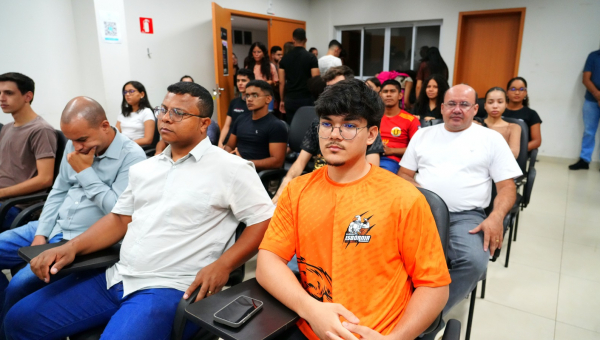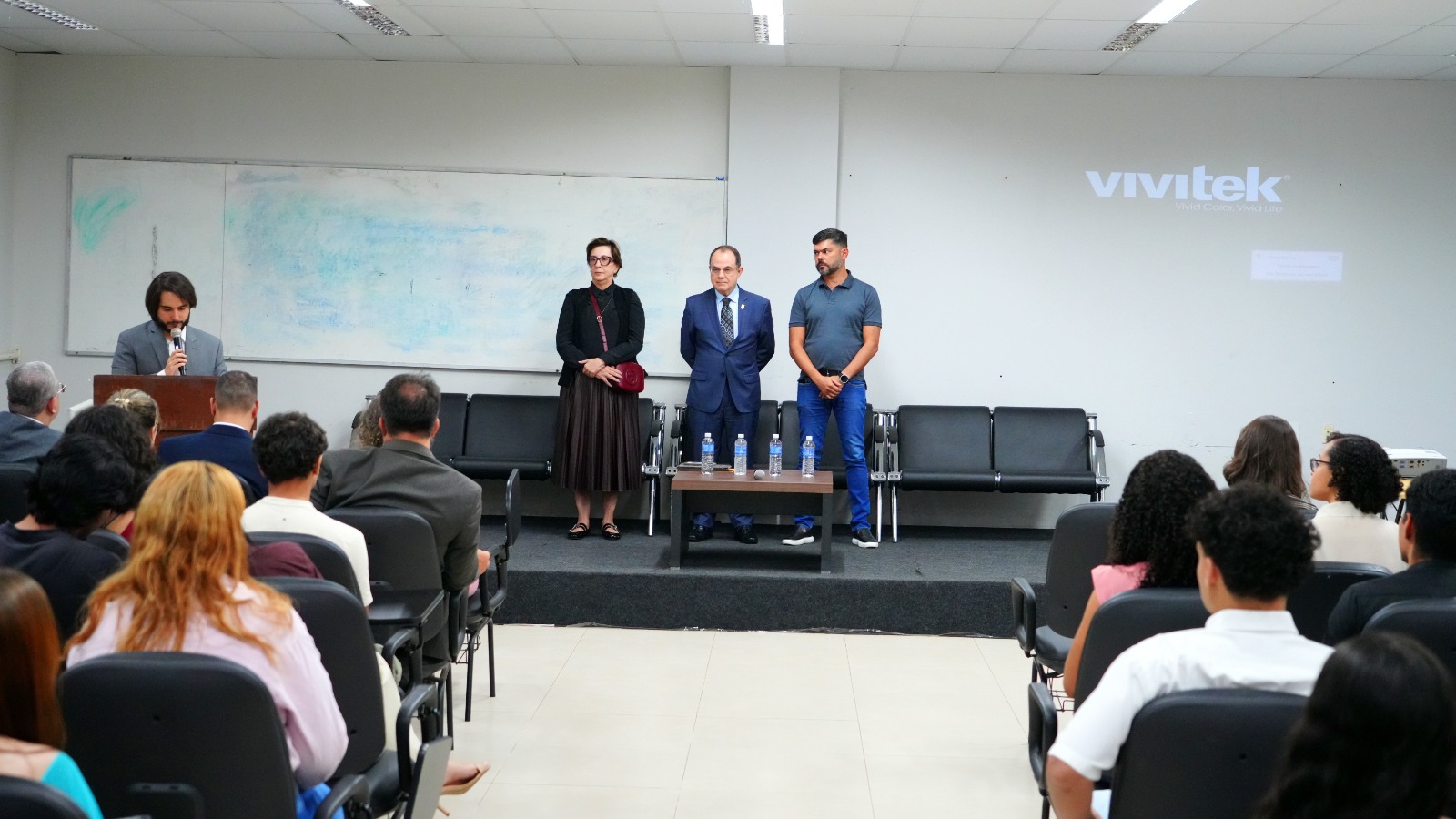
The Law Course from UFT, Palmas campus, opened the semester with the Magna Class on "Artificial Intelligence in Law: practical applications and ethical challenges", held last Friday, August 29th, 2025, in the auditorium of the Dean. The Board brought together professors Marco Villas Boas, Ângela Issa Haonat and Wellington Magalhães and filled up the auditorium of the Dean with academics from UFT. In the exhibitions, an overview of the evolution of AI and its applications in the Justice ecosystem was highlighted - prompt engineering, summary of proceedings, search for precedents and support for the preparation of minutes - always with human supervision and adherence to governance guidelines.
For the course coordinator, Professor Rafael Tubone Magdaleno, the meeting fulfilled with brilliance the mission of inaugurating the semester by combining theoretical density and practical focus, strengthening the critical and citizen formation of the academic body. The professor also recalled that the massive public participation shows the maturity of the debate at UFT and it launches an agenda for continuity.
“We will continue to promote meetings, workshops and surveys that connect classrooms, courts and society with a critical sense and public commitment", he said.
Opening the Board, Justice Marco Villas Boas, general director of Esmat, presented an accessible and rigorous panorama of the evolution of AI, from perceptron to transformer architectures and discussed effective applications in the Justice ecosystem, including prompt engineering, summary of the search for precedents and the preparation of minutes, always with human supervision and adherence to guidelines such as the Resolution 615 of the CNJ of 2025.
In her conference, Justice Ângela Issa Haonat presented AI in the Judiciary in four axes - responsibility, sovereignty, governance and privacy/cybersecurity -, highlighting the normative evolution of the CNJ (Resolutions no 332, of 2020, and no 615, of 2025), the role of the Sinapses Platform, human supervision and impact reports for high-risk systems. She defended the sovereignty of data, mandatory anonymization, sealing to the "predictive justice" and public trust as a guiding principle - with the premise that technology should serve Justice, not the other way around.
Professor Wellington Magalhães emphasized the use of AI in environmental actions, mapping hypotheses and metrics (procedural agility and decision consistency) and the use of territorial and environmental bases for screening, document analysis and monitoring compliance with decisions. In convergence, the Board stressed ethical pillars - bias mitigation, privacy, explainability and accountability - and the centrality of the human in decisions. The balance, according to Professor Rafael, is an agenda of continuity with new workshops and research that bring classrooms, courts and society closer together.




